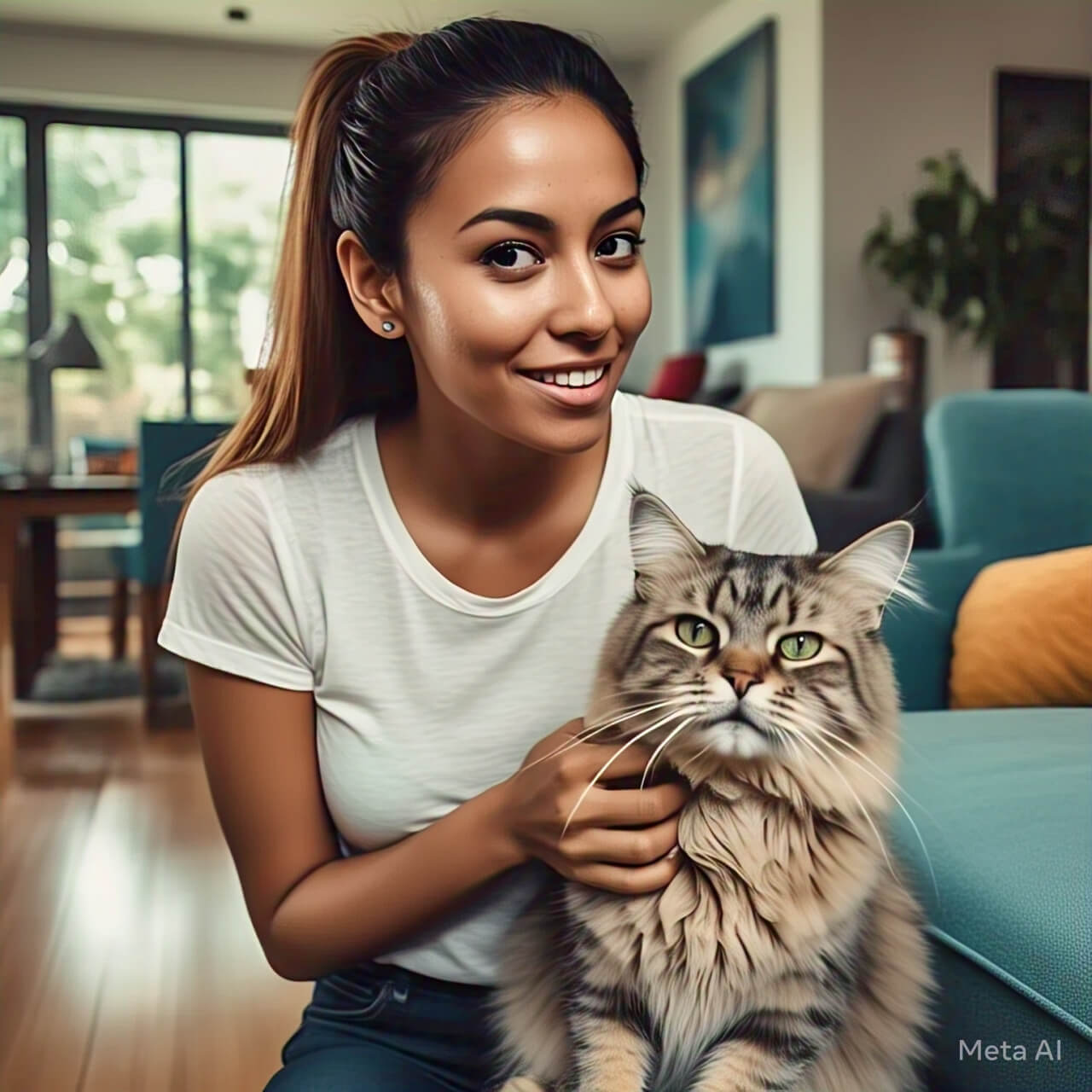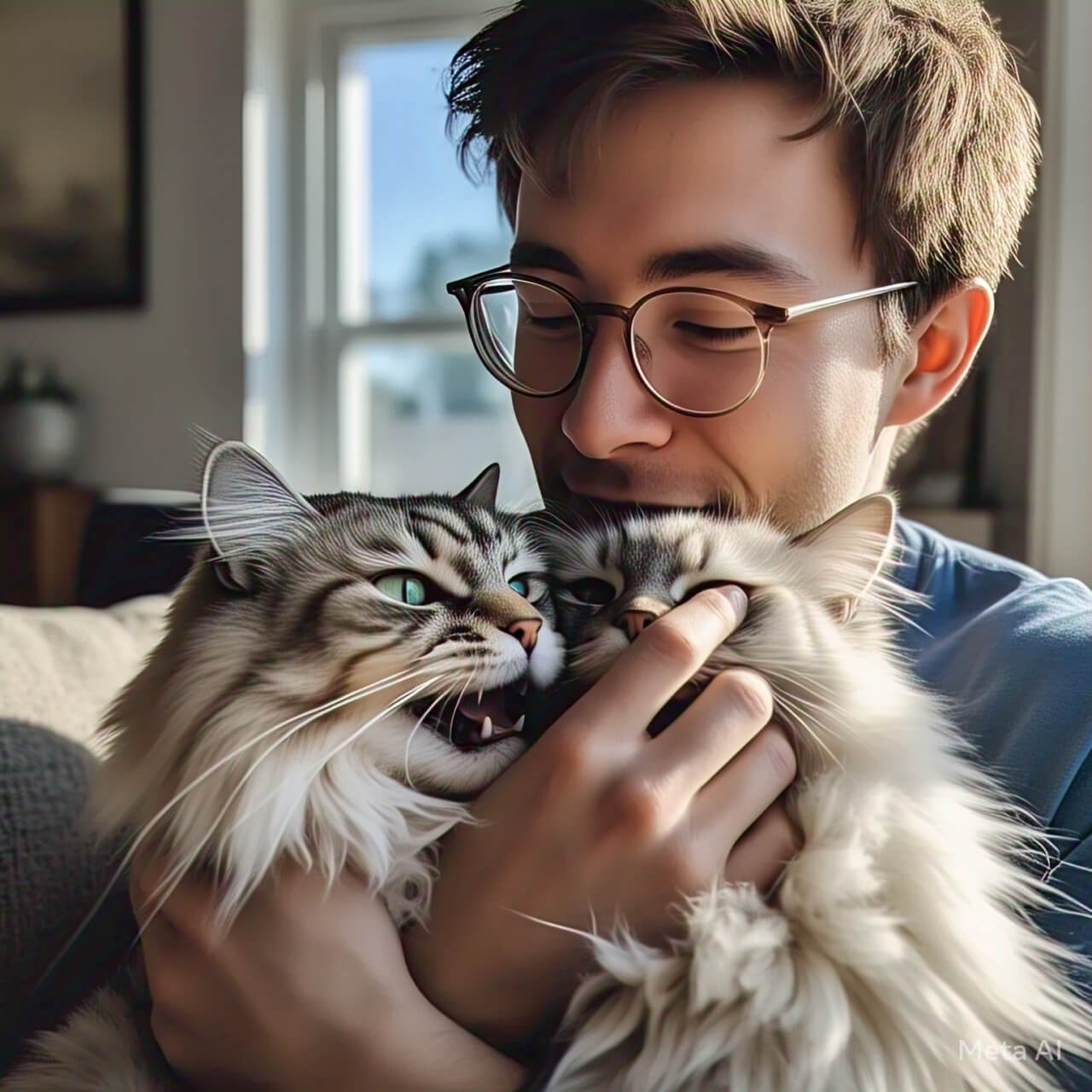How to Stop a Cat from Meowing Excessively: Excessive meowing in cats can be frustrating, but understanding why your cat is vocalizing so much is the first step to solving the problem. Cats meow for many reasons—hunger, boredom, stress, illness, or simply seeking attention. If your cat suddenly starts meowing more than usual, check for any health issues first by visiting a vet. Once medical problems are ruled out, you can focus on behavioral solutions. Providing enough food, playtime, and mental stimulation can reduce excessive meowing.
Ignoring attention-seeking meows (while rewarding quiet behavior) also helps. Some cats meow due to loneliness, so spending quality time with them or getting another pet for company might work. Older cats may meow more due to confusion, so keeping a consistent routine helps. By identifying the cause and responding appropriately, you can reduce excessive meowing and enjoy a quieter, happier cat.

10 Tips to Stop a Cat from Meowing Too Much
- Check for health problems.
- Feed on a schedule.
- Provide fresh water.
- Play daily.
- Ignore attention-seeking meows.
- Reward quiet behavior.
- Create a safe space.
- Use puzzle toys.
- Keep a routine.
- Consult a vet if needed.
1. Understand Why Your Cat Is Meowing
Cats meow to communicate different needs. Hunger, boredom, stress, or illness can cause excessive meowing. If your cat suddenly becomes more vocal, a vet visit is important to rule out health problems like thyroid issues or pain. Older cats may meow more due to cognitive decline. Once medical causes are eliminated, observe when and why your cat meows. Do they cry for food, attention, or out of loneliness? Understanding the reason helps in finding the right solution.
2. Stick to a Feeding Schedule
Cats often meow when hungry. Free-feeding (leaving food out all day) can lead to overeating, while scheduled meals prevent excessive meowing for food. Feed your cat at the same times daily. Use automatic feeders if needed. If your cat still begs, avoid giving treats outside mealtime. Consistency helps reduce food-related meowing.
3. Provide Mental and Physical Stimulation
Boredom leads to excessive meowing. Cats need playtime to burn energy. Use interactive toys like feather wands or laser pointers for 15-20 minutes daily. Puzzle feeders challenge their minds. A stimulated cat is less likely to meow for attention. Rotate toys to keep them interested.
4. Ignore Attention-Seeking Meows
If your cat meows for attention, responding encourages the behavior. Instead, ignore them until they’re quiet, then reward with pets or play. Consistency is key—don’t give in sometimes, as this confuses the cat. Over time, they’ll learn quiet behavior gets attention.
5. Create a Comfortable Environment
Stress or discomfort can cause excessive meowing. Ensure your cat has a cozy bed, hiding spots, and vertical spaces like cat trees. Keep their litter box clean. Reduce loud noises or changes in the home that may stress them. A happy cat meows less.
6. Use Positive Reinforcement
Reward quiet behavior with treats or affection. When your cat stays silent, praise them. Avoid punishing meowing—it increases stress and worsens the problem. Positive reinforcement teaches them that being quiet earns rewards.
7. Check for Loneliness
Some cats meow because they’re lonely. If you’re away often, consider a pet sitter or a second cat for company. Interactive toys or leaving the TV on can also help. Spending quality time daily reduces loneliness-related meowing.
8. Keep a Consistent Routine
Cats thrive on routine. Sudden changes in feeding, playtime, or sleeping schedules can cause stress and more meowing. Stick to a predictable daily schedule to keep your cat calm and secure.
9. Try Calming Solutions
For anxious cats, calming sprays, pheromone diffusers (like Feliway), or soft music can reduce stress-induced meowing. Consult your vet before using supplements or medications for anxiety.
10. Know When to See a Vet
If meowing persists despite trying these tips, visit a vet. Underlying health issues like hyperthyroidism, hearing loss, or dementia (in older cats) may be the cause. Early treatment improves your cat’s quality of life.
FAQs About Excessive Cat Meowing
| Question | Answer |
|---|---|
| Why is my cat meowing so much suddenly? | Sudden excessive meowing could mean illness, pain, or stress—visit a vet. |
| Should I ignore my cat’s meowing? | Ignore attention-seeking meows but reward quiet behavior to train them. |
| Can hunger cause excessive meowing? | Yes, sticking to a feeding schedule helps reduce food-related meowing. |
| Do older cats meow more? | Yes, due to cognitive decline or health issues—consult a vet. |
| How can I calm a noisy cat at night? | Play before bedtime, feed a small meal, and keep a quiet, dark sleeping area. |
By following these tips, you can reduce excessive meowing and create a happier, quieter home for both you and your cat.










